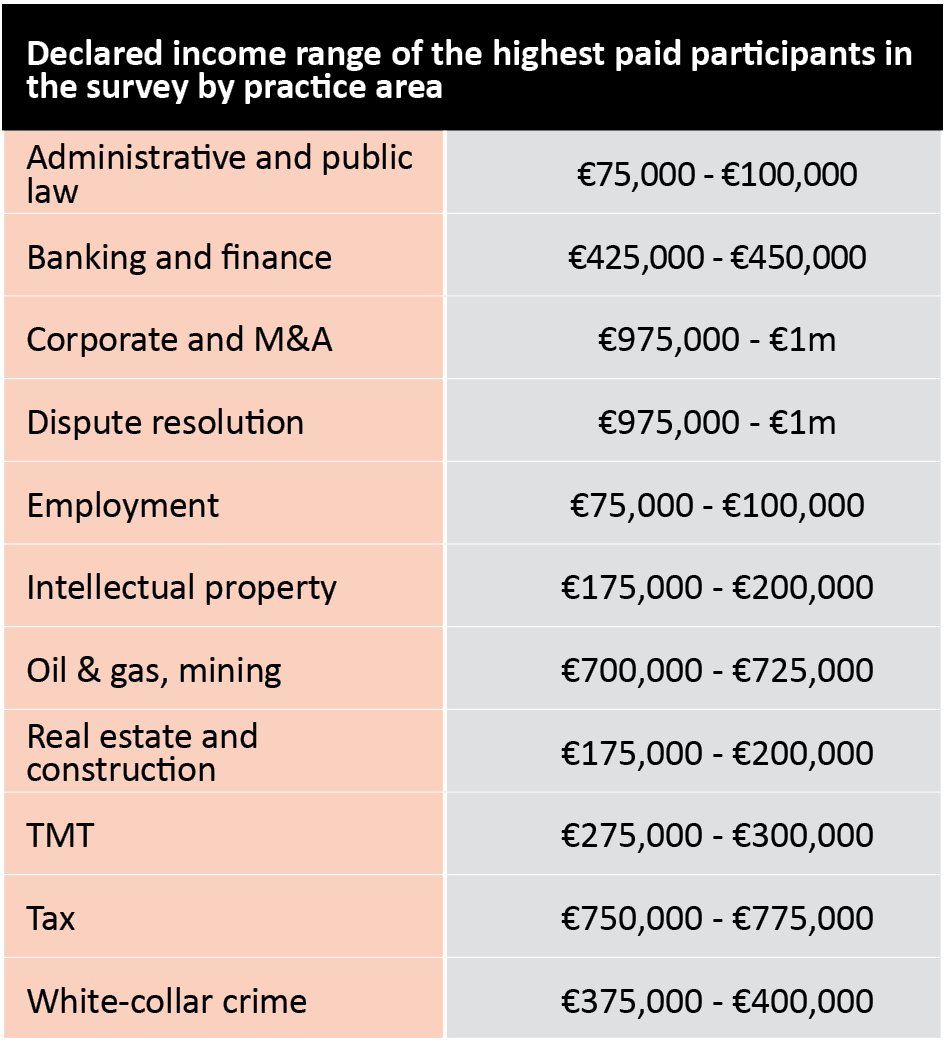Most partners in Portugal expect remuneration to increase in next year
Three out of four partners experienced an increase in their income in the last 18 months, though 25 per cent would move to a rival firm if it meant greater remuneration
The majority of partners in Portugal expect their remuneration to increase in the coming year, according to new research by Iberian Lawyer. The study showed that 54 per cent of partners at Portuguese firms expected their income to go up in the next 12 months.
Portuguese law firms are enjoying a period of substantial growth, with major firms in Lisbon experiencing double-digit increases in revenue in the last year. Much of the increase in revenue has been attributed to the country regaining the confidence of international investors following its recovery from the period 2011-14, when it received a bailout from the European Union and the International Monetary Fund. However, law firms have also grown revenue by introducing measures to enable them to serve clients more efficiently and speed up billing processes.
Law firm partners will reap some of the rewards of these rises in income. Not only do the majority think their remuneration will increase in the coming year, but of those expecting an increase, most expect their income to go up by around 10 per cent, or even more.
 It seems that any rises in partner income in the next year will be a continuation of the general trend of the last 12 to 18 months. The survey showed that nearly three-quarters (72 per cent) of partners in Portugal had experienced an increase in their income in the last year-and-a-half. However, of the 28 per cent that had not had an increase in remuneration in the last 18 months, around two-thirds have not experienced a rise in income for more than three years.
It seems that any rises in partner income in the next year will be a continuation of the general trend of the last 12 to 18 months. The survey showed that nearly three-quarters (72 per cent) of partners in Portugal had experienced an increase in their income in the last year-and-a-half. However, of the 28 per cent that had not had an increase in remuneration in the last 18 months, around two-thirds have not experienced a rise in income for more than three years.
Tempted by move
With partner income on the increase, generally speaking, it comes as little surprise that partners generally seem happy at their current firm. A total of 75 per cent said they would not consider joining another firm even if it meant their remuneration would increase. However, there is some hope for legal recruiters in Portugal – in the last 12 months, one in eight partners at firms in Portugal has thought about moving to another law firm for more money. Meanwhile, one in four partners said they would move to a rival firm if it meant they would increase their income. That said, it seems that even some of those who are content at their current firm would be tempted to move if they were offered a substantial increase in income – some of these respondents said that the offer of 50 per cent more money would result in them giving a lateral move some consideration.
The vast majority of respondents to the survey think women partners are fairly remunerated, with 95 per cent subscribing to this view. However, 30 per cent of the respondents (which were overwhelmingly men) said they did not think they personally were fairly remunerated for their work.
Changes to remuneration
The participants in the survey with the highest levels of remuneration were corporate/M&A and dispute resolution partners, who said they could earn as much as €1 million per year. All the best paid participants also fitted into the following criteria – they were men who had been partners for more than 15 years and who currently worked at large firms (that is, with 200 lawyers or more). 
The participants in the survey with the lowest earnings – in the region of €50,000-€100,000 – were predominately women with less than five years’ experience as a partner who worked in firms of less than 50 lawyers. They worked in a range of practice areas, including administrative/public law, corporate/M&A, employment and tax.
Generally speaking, partners in Portugal are happy with the way in which their firm remunerates lawyers. A total of 79 per cent of respondents said they thought their firm’s remuneration system was effective. However, one in five (21 per cent) of survey participants said their firm’s method of remuneration was ineffective, with some calling for partners to be remunerated in accordance with the number of new clients they bring to the firm, the number of hours they bill, and the number of hours for which they are paid.












